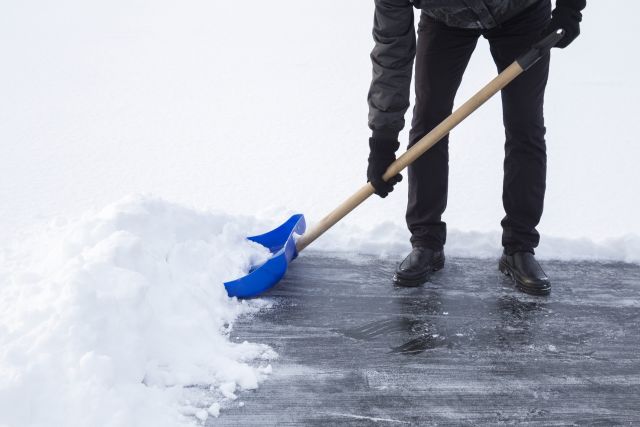Updated on September 26, 2025.
Each year, around 100 Americans die while shoveling snow, or shortly afterward. Hundreds more are hospitalized for related heart problems. Most are men, and many have existing heart disease.
Shoveling isn’t the only cold weather danger for people with heart problems, however. A drop in body temperature called hypothermia can lead to cardiac arrest (when the heart suddenly stops beating), heart failure and more. Winter is peak flu season, too, and catching the illness raises your chances of heart attack and stroke.
So what should someone with a heart condition do when the weather turns colder?
Dress appropriately
Ideally, it’s best to stay in warm at home on cold days. Chilly weather can cause blood vessels to narrow, meaning your heart has to work harder to pump blood. If you must go outdoors, wear a warm coat along with a scarf and hat, since your head tends to lose a lot of heat. Opt for layers of clothing underneath. They’ll keep you insulated, but you can take them off if you become overheated. If you get wet, change into a new outfit immediately. Damp clothes speed the loss of body heat.
Avoid overexertion
Shoveling—or even walking—through heavy snow can strain your heart, especially if you don’t exercise regularly. If you can, pay someone to dig out the driveway or hire someone to plow. If you can’t, take breaks when you work outside, and stop if you become tired or start to feel poorly. Chest pain and shortness of breath are among the most common signs of a heart attack; don’t ignore them, even if they go away. See a healthcare provider (HCP) at once for any unusual symptoms.
Prevent the flu
Protect your heart health by washing your hands often, avoiding people you know to be sick and getting an annual flu shot. And if you do feel an illness coming on? Speak with your HCP about treatment.
Stick to your prescriptions
Sometimes, at the end of a busy day, it can be easy to forget to take prescirtion medication. Other times, storm conditions make it tough to reach an HCP or pharmacy. Don’t let cold weather keep you from taking your heart medication; set reminders and ensure you’re stocked up in the event of a storm. Traveling? Check to see if your pharmacy delivers. On planes, pack drugs in a carry-on bag and take enough for delays, just in case.
Practice healthy habits
Between holiday celebrations and being stuck inside for months on end, winter can undermine healthy living. While it’s okay to indulge sometimes, eating a nutritious diet and getting regular exercise as you are able helps keep your heart in good shape throughout the season. Try to balance party snacks with lighter, plant-based food and look into indoor physical activities, like mall walking or practicing yoga at home (try streaming yoga videos on your TV or cell phone), which is great for heart health. Speak with a provider for recommendations before starting any new exercise program.







